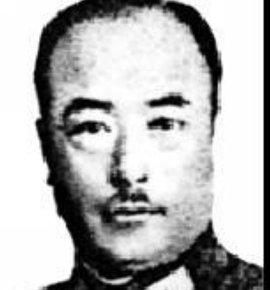Lu Guangwei (1903-1944), Manchu, major general of the Kuomintang Army. A native of Fengcheng, Liaoning. Graduated from the Tohoku Kobudo Hall. Later, he served in the Northeast Army. In 1928, he was appointed commander of the cavalry regiment of the 105th Division of the Army. After the July 7 Incident in 1937, he participated in the Battle of Songhu in Shanghai, and was later promoted to brigadier general of the 315th Brigade of the 8th Cavalry Division. In 1941, he was promoted to deputy commander of the Eighth Cavalry Division and director of the Political Department. In 1944, when the Japanese army invaded the Central Plains on a large scale, Lu Guangwei, then deputy commander of the Eighth Cavalry Division and director of the Political Department, was ordered to snipe the Japanese army on the roof and was shot and killed in a fierce battle.

Yang Shangwu (September 1907 – May 1, 1944), nicknamed Zhucheng and Zhizhong, was a native of Hanshou County, Hunan Province, and the commander of the 85th Regiment of the newly organized 29th Division of the 15th Army. Ordered to attack the enemy in Xuchang, the city was destroyed on April 29, and on May 1, the enemy ambushed the enemy between the villages of Yuzhuang and Sugou on the outskirts of the city, and was martyred by several bullets. He was posthumously awarded the title of Major General of the Army by the Nationalist Government.
Lü Gongliang (1903-1944), formerly known as Lü Zhou, a native of Kaihua County, Zhejiang Province, was the commander of the newly organized 29th Division of the 15th Army of the National Revolutionary Army and the commander of the Xuchang Garrison. From April 23 to 28, 1944, the Japanese army invaded the south in three ways, and Xuchang, Henan, was under siege. In the defense of Xuchang, Lü Gongliang commanded thousands of officers and men of the whole division to resist tens of thousands of enemies and use ordinary light weapons to compete with Japanese aircraft artillery and tanks. At the beginning of the battle, the Japanese army was severely damaged. However, due to the huge disparity in strength between the enemy and ourselves, more than 2,000 officers and men were killed on the battlefield in just a few days. On May 1, 1944, the Japanese army captured Xuchang City, Lü Gongliang was shot several times and sacrificed his life for the country, and all his subordinates died heroically, at the age of 42, and was later promoted to general of the army by the Nationalist government.
Chai Yixin (1898 ~ 1943.12.3), Zi Zegao, Ruoyu, a native of Jianxing Town, southern Sichuan Province, was an anti-Japanese general, a hero of the "Tiger Ben", and the only regimental commander (general) who died in the Battle of Changde. On December 3, 1943, in order to prepare for the breakthrough of Yu Division Commander and others, Commander Chai stuck to the Huajing Glass Factory and repeatedly repelled the enemy's wave charge. At dawn, Chai Yixin led his troops to Fuping Street, and when he made a final charge in front of Chunshen's tomb (now the Changde Specialty Store on Democracy Street), he was unfortunately shot and martyred.
Sun Mingjin (1905.9.10~1943.12.1), yuxuan, was a native of Suqian, Jiangsu Province. He was a patriotic general of the Chinese Kuomintang and a famous anti-Japanese hero. He participated in the Northern Expedition. After the outbreak of the War of Resistance Against Japanese Aggression in 1937, he led his troops to various places, repeatedly defeated the strong enemy, and was promoted to the commander of the 10th Reserve Division of the 10th Army with his military merits. In early December 1943, when the Japanese army launched another large-scale attack, Sun Mingjin was not afraid of danger, personally commanded the front, was hit by enemy bullets, and then martyred heroically. The National Government posthumously awarded him the title of Lieutenant General of the Army.
We live in a happy era, and I hope that you will not forget that tragic history and those ancestors who gave us blood and lives!